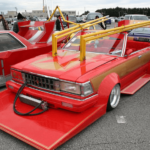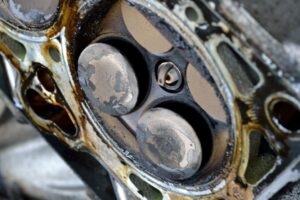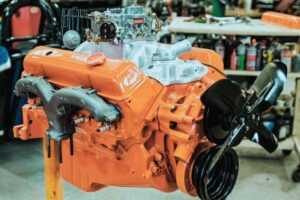When a car is turned off, the power should be cut off completely. However, there are instances when the power stays on even after the engine is turned off.
This can be a cause for concern as it can drain the battery, leading to a dead battery when you try to start the car the next time. If you are experiencing this issue, it is important to diagnose the problem and address it promptly.
There can be several reasons why the power stays on when the car is off. In some cases, it could be a problem with the ignition switch or the electrical wiring. Other times, it could be due to a malfunctioning component, such as the alternator or battery.
Whatever the cause, it is important to have a professional mechanic diagnose the issue to ensure that it is fixed properly and prevent any further damage to the vehicle.
Understanding Car Power Systems

Car power systems are complex and consist of several components that work together to power the vehicle. Understanding how the power system works is essential for diagnosing and fixing problems like power staying on when the car is off.
Ignition System Components
The ignition system is responsible for starting the engine and consists of several components, including the battery, starter motor, ignition switch, and spark plugs. When the key is turned, the battery sends power to the starter motor, which cranks the engine.
The ignition switch then sends power to the spark plugs, which ignite the fuel in the engine’s cylinders, starting the engine.
Battery and Alternator Functions
The battery and alternator work together to provide power to the car’s electrical system. The battery stores electricity, which is used to start the engine and power accessories when the engine is off. The alternator charges the battery and provides power to the electrical system when the engine is running.
Electrical Wiring and Power Relay
The electrical wiring connects the various components of the car’s power system together. It includes wires, fuses, and relays that control the flow of electricity. The power relay is responsible for switching power on and off to various components in the car.
When the car is turned off, the power relay should switch off power to all components, preventing power from staying on.
In summary, the power system of a car is composed of several components that work together to provide power to the vehicle. Understanding how each component works is essential for diagnosing and fixing issues like power staying on when the car is off.
By identifying the faulty component, car owners can take the necessary steps to fix the problem and prevent further damage to the car’s power system.
Common Reasons for Power Staying On
When a car is turned off, all electrical power to the vehicle should be shut down. However, in some cases, the power stays on even when the car is off. This can cause the battery to drain and lead to various electrical problems.
Here are some common reasons why power may stay on in a car:
Faulty Ignition Switch
One of the most common reasons for power staying on in a car is a faulty ignition switch.
The ignition switch is responsible for turning the car on and off, and if it is not working properly, it may fail to turn off the power when the car is turned off. In this case, the ignition switch may need to be replaced to fix the issue.
Malfunctioning Relay or Module
Another reason why power may stay on in a car is due to a malfunctioning relay or module.
These components are responsible for controlling various electrical systems in the car, and if they are not working properly, they may fail to shut off power when the car is turned off. In this case, the relay or module may need to be replaced to fix the issue.
Issues with Steering Column Wiring
Issues with the steering column wiring can also cause power to stay on in a car.
The wiring in the steering column is responsible for connecting various electrical components in the car, and if there is a problem with the wiring, it may fail to shut off power when the car is turned off. In this case, the wiring may need to be fixed or replaced to fix the issue.
Overall, there can be various reasons why power may stay on in a car, and it is important to identify the root cause of the issue to fix it properly. Depending on the cause of the problem, the fix may involve replacing a faulty component, fixing wiring issues, or other repairs.
Diagnosing the Electrical Problem
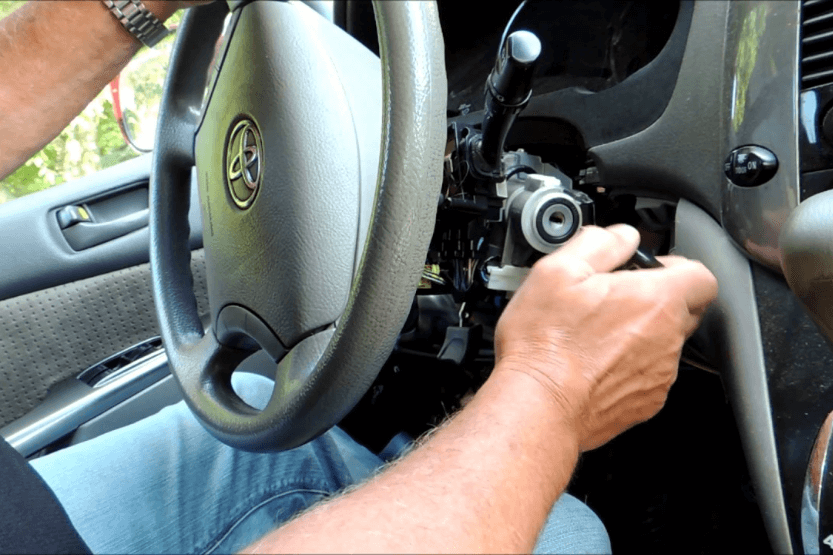
When a car’s power stays on even when the car is off, it can be a sign of an electrical problem. Diagnosing the issue can be tricky, but there are a few steps that a guide or a mechanic can take to identify the source of the problem.
Inspecting the Ignition Switch
One possible cause of the issue could be a problem with the ignition switch. A faulty ignition switch can cause the power to stay on even when the key is removed from the ignition. To inspect the ignition switch, the mechanic can check the connection between the switch and the battery.
If the connection is loose, the power could stay on. If the connection is tight, the mechanic may need to replace the ignition switch.
Testing the Battery and Alternator
Another possible cause of the issue could be a problem with the battery or alternator. A weak battery or a faulty alternator can cause the power to stay on even when the car is off.
To test the battery and alternator, the mechanic can use a multimeter to check the voltage levels. If the voltage levels are low, the battery or alternator may need to be replaced.
Checking Fuses and Relays
A blown fuse or faulty relay can also cause the power to stay on when the car is off. To check the fuses and relays, the mechanic can use a fuse tester to check the continuity of each fuse and relay. If a fuse or relay is faulty, it will need to be replaced.
In conclusion, when a car’s power stays on even when the car is off, it can be a sign of an electrical problem.
A guide or a mechanic can diagnose the issue by inspecting the ignition switch, testing the battery and alternator, and checking the fuses and relays. By following these steps, the source of the problem can be identified and resolved.
Fixing the Issue
There are several ways to fix the problem of power staying on when a car is off. Here are some of the most common solutions:
Replacing Ignition Components
If the problem is with the ignition switch or relay, replacing these components may be necessary. The ignition switch is responsible for turning off the power to the car when the key is removed. A faulty ignition switch can cause the power to stay on even when the key is removed.
Similarly, a faulty relay can cause the power to stay on even when the car is turned off. If these components are the cause of the problem, replacing them should solve the issue.
Repairing or Replacing Wiring
Wiring issues can also cause the power to stay on when the car is turned off. If there is a short circuit or a damaged wire, the power may continue to flow even when the car is off.
In this case, repairing or replacing the wiring may be necessary. A mechanic can inspect the wiring and determine the best course of action.
Solving Battery Drain Problems
Sometimes the problem is not with the ignition components or wiring, but with a battery drain issue. If the battery is draining when the car is off, the power may continue to stay on. This can be caused by a variety of factors, including a faulty alternator or a parasitic draw.
A mechanic can diagnose the issue and recommend the best solution, which may involve repairing or replacing the alternator, or identifying and fixing the source of the parasitic draw.
In summary, fixing the issue of power staying on when a car is off may involve replacing ignition components, repairing or replacing wiring, or solving battery drain problems. A mechanic can diagnose the issue and recommend the best solution.
Preventative Measures and Maintenance
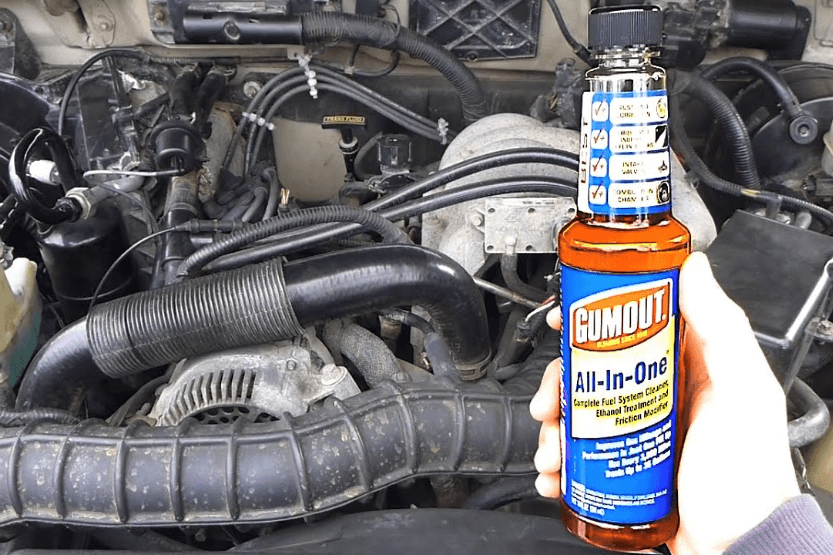
Regular maintenance of a vehicle’s electrical system can help prevent issues like power staying on when the car is off. Here are some preventative measures and maintenance techniques that can help ensure the electrical system is working correctly.
Regular Electrical System Checkups
Regular electrical system checkups can help identify any potential issues before they become significant problems.
A professional mechanic can perform a diagnostic test to check for any electrical problems. They can also inspect the battery, alternator, and starter to ensure they are functioning correctly.
Using Engine Cleaning Fuel Additives
Using engine cleaning fuel additives can help keep the engine running smoothly and prevent electrical issues. These additives help clean the fuel system, remove any buildup, and prevent corrosion. This can help ensure that the fuel system is working correctly and the engine is running efficiently.
Maintaining Proper Ignition Timing
Maintaining proper ignition timing is essential to ensure the engine is running correctly. Ignition timing refers to the precise timing of the spark plug firing in relation to the position of the piston.
If the ignition timing is off, it can cause the engine to run poorly, which can lead to electrical issues. Regular maintenance of the ignition system can help ensure proper ignition timing.
By following these preventative measures and maintenance techniques, car owners can help ensure that their vehicle’s electrical system is working correctly. This can help prevent issues like power staying on when the car is off, which can lead to battery drain and other problems.
To Sum Up
In summary, there are several reasons why a car’s power stays on even when the vehicle is turned off. One of the most common causes is a faulty ignition switch. A faulty switch can cause the electrical system to remain on even after the key is removed.
Another possible cause is a malfunctioning alternator that keeps the battery charged even when the engine is not running.
Other potential culprits include a malfunctioning starter motor, a short circuit in the wiring, or a malfunctioning accessory that is drawing power from the battery. In some cases, the problem may be due to a faulty relay or fuse.
If a car owner experiences any of these issues, it is important to diagnose the problem as soon as possible. Leaving the electrical system on for an extended period of time can drain the battery and cause other problems.
A professional mechanic can identify the root cause of the problem and recommend the appropriate repairs.
To prevent this issue from happening in the future, car owners should always turn off the engine and remove the key from the ignition when leaving the vehicle. They should also avoid leaving any accessories plugged in when the car is not in use.
Overall, it is important to address any issues related to a car’s electrical system promptly to avoid further damage and ensure the safety of the driver and passengers.



